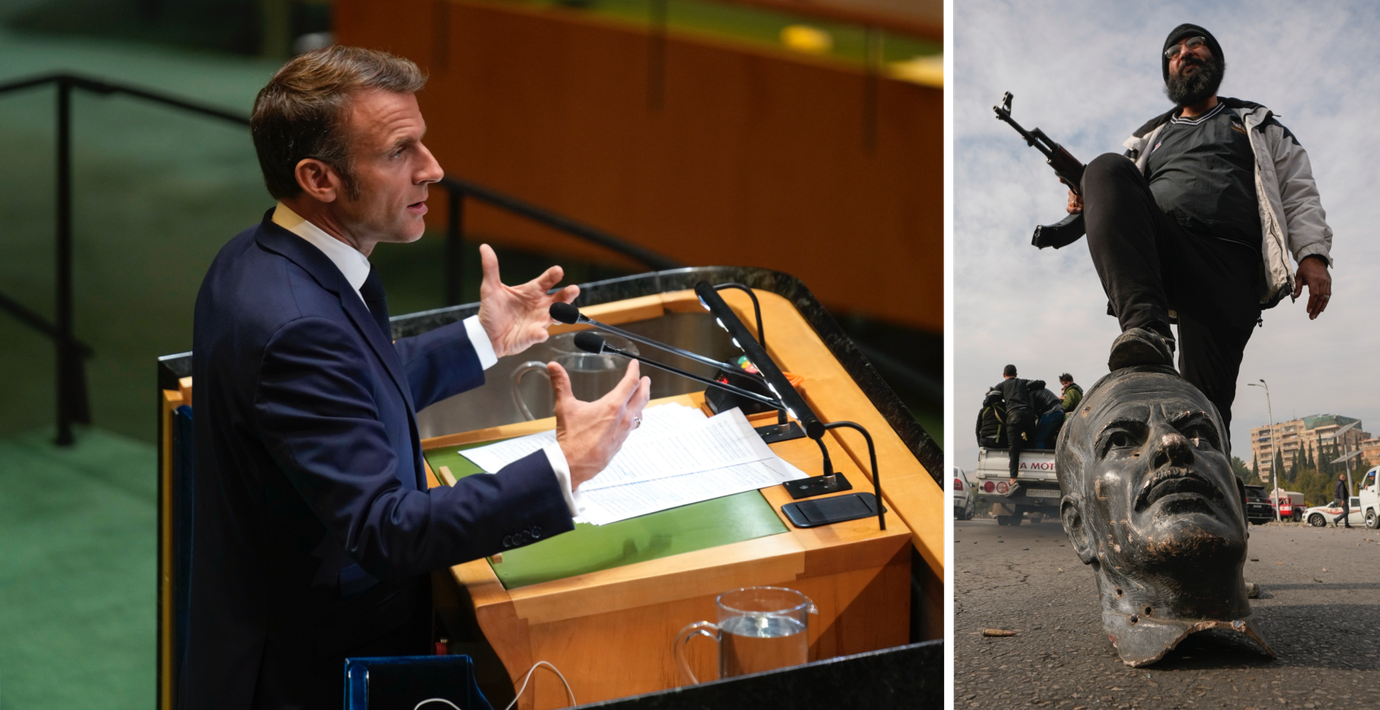Wikipedia (en)
Hay'at Tahrir al-Sham (HTS), also referred to as Tahrir al-Sham, is a Sunni Islamist political and paramilitary organisation involved in the Syrian civil war. It was formed on 28 January 2017 as a merger between several armed factions: Jaysh al-Ahrar (an Ahrar al-Sham faction), Jabhat Fateh al-Sham (JFS), Ansar al-Din Front, Jaysh al-Sunna, Liwa al-Haqq, and the Nour al-Din al-Zenki Movement. The unification process was held under the initiative of Abu Jaber Shaykh, an Islamist militant commander who had been the second emir of Ahrar al-Sham. HTS, along with other Syrian opposition groups, launched an offensive and toppled the Assad regime on 8 December 2024, and now controls most of the country.
Proclaiming the nascent organisation as "a new stage in the life of the blessed revolution", Abu Jaber urged all factions of the Syrian opposition to unite under its Islamic leadership and wage a "popular jihad" to achieve the objectives of the Syrian revolution, which he characterised as the ouster of the Ba'athist regime and Hezbollah militants from Syrian territories, and the formation of an Islamic government. After the announcement, additional groups and individuals joined. The merged group has been primarily led by Jabhat Fatah al-Sham and former Ahrar al-Sham leaders, although the High Command also has representation from other groups. The Nour al-Din al-Zenki Movement split from Tahrir al-Sham in July 2017, and the Ansar al-Din Front in 2018.
The formation of HTS was followed by a string of assassinations of its supporters. In response, HTS launched a successful crackdown on Al-Qaeda loyalists, which cemented its power in Idlib. HTS has since been pursuing a "Syrianisation" programme, focused on establishing a stable civilian administration that provides services and connects to humanitarian organizations in addition to maintaining law and order. Tahrir al-Sham's strategy is based on expanding its territorial control in Syria, establishing governance and mobilising popular support. In 2017, HTS permitted Turkish troops to patrol North-West Syria as part of a ceasefire brokered through the Astana negotiations. Its policies have brought it into conflict with Hurras al-Deen, Al-Qaeda's Syrian wing, including militarily. HTS had an estimated 6,000–15,000 members in 2022.
From 2017 to 2024, Hay'at Tahrir al-Sham gave allegiance to the Syrian Salvation Government (SSG), which was an alternative government of the Syrian opposition in the Idlib Governorate. While the organisation officially adheres to the Salafi school, the High Council of Fatwa of the Syrian Salvation Government – to which it is religiously beholden – consists of ulema from Ash'arite and Sufi traditions as well. In its legal system and educational curriculum, HTS implements Shafi'ite thought and teaches the importance of the four classical Sunni madhahib (schools of law) in Islamic jurisprudence. After the fall of Damascus, the SSG was replaced by the Syrian transitional government. From 2021 to the fall of Assad, HTS was the most powerful military faction within the Syrian opposition. Τhe organisation was designated a terrorist group by United Nations Security Council Resolution 2254, which classified the group's precursor, Al-Nusra Front.




